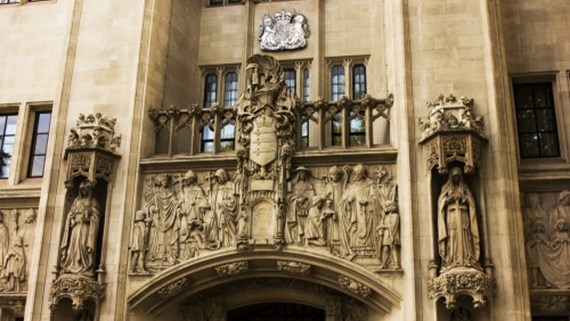Members of charitable companies and fiduciary duties – The Supreme Court ruling in the CIFF case
Insight

The Supreme Court issued its judgment in the Children’s Investment Fund Foundation (UK) (CIFF) case on 29 July 2020.
The Supreme Court found that in principle members of all charitable companies owe fiduciary duties to the purposes of the charitable company. The 73 page judgment considers at length the nature of these duties and helpfully encourages the Charity Commission to produce guidance for charitable companies on the duties of members, which will be awaited with interest.
The Supreme Court allowed the appeal brought and as a result the grant from CIFF to Big Win Philanthropy of US$360 million is now likely to go ahead.
Background to the Supreme Court’s judgment
The backdrop to the case was the divorce of Sir Chris Hohn and Jamie Cooper. Back in 2002, the couple created CIFF, which for a considerable period received a proportion of the proceeds of the hedge fund, the Children's Investment Fund.
The two divorced in 2014. By this time, CIFF was one of the country’s largest charities with assets over US$4bn and income of approximately US$250 million.
The charity was established as a company limited by guarantee and both Sir Chris and Ms Cooper were trustees and members of the charitable company. While the Board of Trustees numbered eight, there was only one other member, Dr Marko Lehtimäki, a friend of Sir Chris’s from university.
To resolve the difficulties in relations between Sir Chris and Ms Cooper in managing CIFF, it was agreed that Ms Cooper would step down from CIFF as member and trustee after:
- Sir Chris and Ms Cooper each contributing US$40 million to a new charity (to be run by Ms Cooper and called Big Win Philanthropy)
- CIFF granting US$360 million to Big Win Philanthropy (the Grant)
There was unanimous agreement among the CIFF trustees to this solution, although the non-conflicted charity trustees made their approval conditional on Charity Commission or Court approval. It was subsequently agreed that the approval of the Court should be sought to the grant.
The High Court ruled in June 2017 and determined that (i) members of CIFF owed it fiduciary duties; (ii) the Grant was a payment requiring approval of the members under company law because it was a payment to Ms Cooper to compensate for loss of office; and (iii) it approved the Grant and directed Dr Lehtimäki (as sole unconflicted member) to vote in favour of approving the Grant.
Dr Lehtimäki appealed the High Court’s ruling. The Court of Appeal issued its judgment in July 2018 and it found that: (i) members of CIFF owed it fiduciary duties; (b) the Court had no authority to compel Dr Lehtimäki to vote in favour of a resolution where there was no evidence of a breach of duty on his part (and it was accepted that there was no such evidence). The Court of Appeal was also concerned that directing Dr Lehtimäki to vote in favour of the resolution may be contrary to parliament’s intentions in allowing members a say on decisions that fell within section 217 of the Companies Act 2006.
Since the judgments of the lower courts in the CIFF case, practitioners have struggled with interpreting the nature of the fiduciary duties that the court has found members of charitable companies may owe.
What did the Supreme Court decide?
The Supreme Court ruled that:
- Dr Lehtimäki is a fiduciary when acting as a member of CIFF. Lady Arden noted that “the distinguishing characteristic of a fiduciary is that he owes a single-minded duty of loyalty in matters covered by his duty.”
- The nature of fiduciary duties owed by members of charitable companies are as set out in charity law, company law and the Articles of Association making the duty a ‘contract-and-statute-based model’. It is a duty owed to furthering the purpose of the company rather than to the company itself.
- The Court may direct Dr Lehtimäki to vote in favour of the resolution. The reason for this was found by:
a. Lord Briggs, Lord Wilson and Lord Kitchin to be based on the member’s right to a free vote was removed by the court deciding the Grant was in CIFF’s best interests, following the trustees of CIFF deciding to surrender their discretion in the matter to the court. Not following the court’s decision in circumstances where the trustees had opted to surrender their discretion would be a breach of duty and therefore the court may direct Dr Lehtimäki to authorise the Grant.
b. Lady Arden’s view was that this was a rare exception to the non-intervention principle that allowed a direction to be given to a fiduciary absent any breach of duty. - The Companies Act 2006, Section 217 does not prevent the court from directing a member to vote in favour of the resolution.
Practical implications of the judgment
William Henderson, counsel for CIFF, submitted to the Supreme Court a list of ten practical difficulties in administering charitable companies resulting from the lack of certainty as to the nature of the fiduciary duties owed by members that included:
- Whether a member with a conflict of interest can vote
- Whether there ought to be declarations of interest before meetings of members
- Whether a member has a duty to attend and vote at meetings
- What information a member could require from the company
- Whether a member would be liable to compensate the company if he exercised his right to vote in breach of duty
While the judgment of the Supreme Court did not opine in response to all ten, the leading judgment of Lady Arden ruled that a member:
- that stands to benefit from a transaction should declare the conflict and not vote on that transaction;
- has no greater right to require information from the company than previously, even if that information is relevant to exercising fiduciary duties; and
- may benefit personally from the charity without offending the no profit principle where the benefit is authorised by the charity’s Articles.
The Supreme Court said that fiduciary duties are interpreted within the context of the circumstances in which they arise and therefore the more limited nature of membership (in contrast with charity trusteeship) did not prevent membership being fiduciary in nature. Further, this was a general principle that applied to all charities, even those with a large membership.
The Supreme Court distinguished between fiduciary duties owed by members and certain third-party rights set out in the Articles of Association (such as founder rights that give veto rights to particular transactions), noting that certain third party rights might not be fiduciary in nature (unless that third party is themselves a fiduciary). This perhaps implies that those who wish to exercise certain controls over a charity may find it easier to do so where those rights are expressed as veto rights separate from the powers reserved to members. That said, third party rights are likely to be more vulnerable to being ousted by members and harder to enforce than membership rights.
There remain plenty of scenarios where, even with the benefit of the Supreme Court’s judgment, unpacking the nature of a member’s duties and acting in accordance with these duties will prove complex and throw up questions without easy answers. For example, where a charity is the sole corporate member of another charity, is it able to properly exercise its membership powers in a way that is in the interests of the parent charity?
The Supreme Court implied that the fiduciary duties of members of charitable companies may differ from the fiduciary duties of members of charitable incorporated organisations (CIOs), leaving the promoter of a new charitable structure with a decision as to which uncertainty is preferable. This question has no easy answer at present.
Hopefully the Charity Commission will, at the court’s prompting, issue guidance on the nature of member fiduciary duties and what this means in practice, to offer a degree of reassurance to members of charitable companies on acting in accordance with their fiduciary obligations.
The fact that the Supreme Court unanimously agreed (but for different reasons) to direct Dr Lehtimäki to vote in favour of the grant, may perhaps lead to charities being more willing to trouble the court or the Charity Commission for directions in future. That said, given the unusual circumstances in this case, and the enormous sums involved, it is likely that this part of the judgment may not have such a considerable effect on the development of charity law as the finding that members of charitable companies owe fiduciary duties.
If you require further information about anything covered in this briefing, please contact Elizabeth Jones, or your usual contact at the firm on +44 (0)20 3375 7000.
This publication is a general summary of the law. It should not replace legal advice tailored to your specific circumstances.
© Farrer & Co LLP, August 2020






